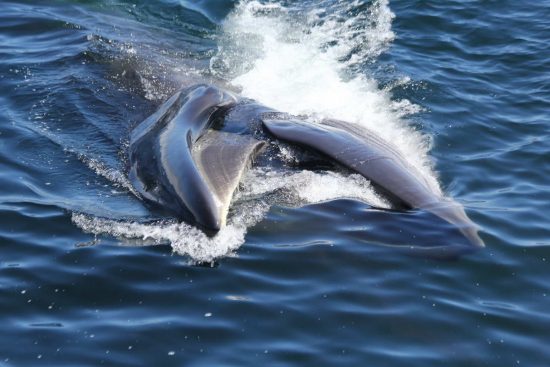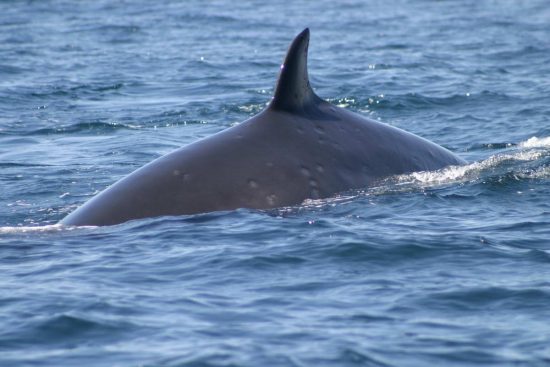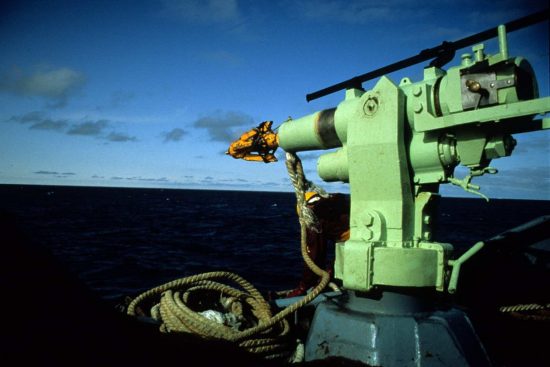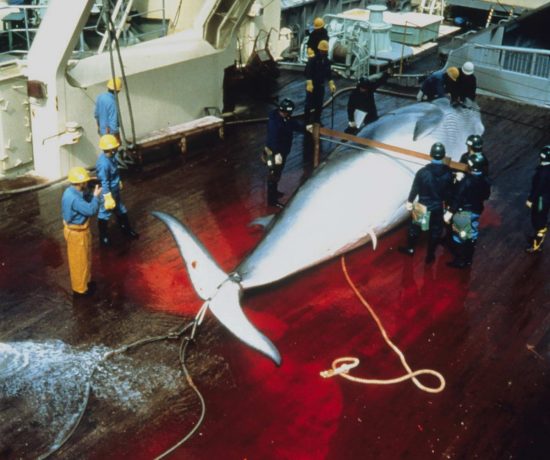





CITIES meeting misses historic opportunity
Last week, on 27 November 2017, the Standing Committee of CITES missed the opportunity to put an end to Japan's massive domestic trade in sei whale meat. Instead, the committee postponed a decision on its legality until the end of 2018.
Since 2002, the Japanese whaling fleet has caught more than 1,400 sei whales in the North Pacific. The whales, which are listed as “critically endangered” on IUCN’s Red List, are cut up on the factory ships and the edible parts are set aside to be sold. Since the sei whales are caught in international waters for commercial purposes, this is strictly prohibited under CITES regulations.
Although some body parts are preserved for scientific research, the majority of every whale - about twelve tonnes each - ends up frozen and vacuum-sealed, destined for human consumption in Japan. In 2017, Japan raised the catch quota for sei whales from 90 to 134 per year.
Japan had declared all sei whale products as research samples. In 2016, the Standing Committee launched an investigation against Japan. Although several parties, including African and Latin American countries, called for urgent action in the current session, the Chair concluded that the committee should grant Japan another year to answer the original questions.
The conservation organisations present at the meeting were disappointed:
Astrid Fuchs of the Whale and Dolphin Conservation Organization (WDC) said, "This decision is very disappointing. The meat of more than 1,000 endangered whales has been sold on the Japanese market, contrary to Japan’s obligations under CITES. Many member countries, including those within the European Union, asked for this matter to be treated with urgency and emphasised that we are dealing with heavy trade in an endangered species. It is inconceivable that Japan got a pass and the opportunity to kill another 134 sei whales before CITES will make a decision on the issue.“
Sue Fisher of Animal Welfare Institute expressed disappointment that requests from Niger, Senegal and Guatemala for a stronger and more urgent approach was rejected by the Chair. She said, "Japan has already had more than a year to demonstrate that it is in compliance with the treaty. The fact is that it cannot; its use of sei whale meat is clearly commercial. Now, another 134 whales will die for Japan to be given 'due process’.”
Matt Collis of the International Fund for Animal Welfare (IFAW) said: "Japan has been importing and selling sei whale products since 2002; this is a persistent and intentional violation of CITES rules. There’s a disturbing double standard developing at CITES, where governments appear willing to turn a blind eye to a developed nation openly trading in a banned species, while at the same time throwing the book at developing countries without the capacity to implement CITES provisions.“
More Information: www.whales.org.
 Herbert
Herbert 4th December 2017
4th December 2017